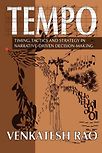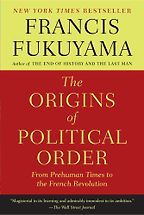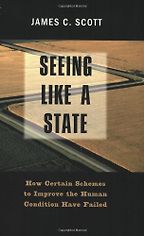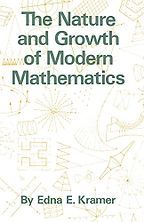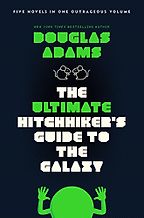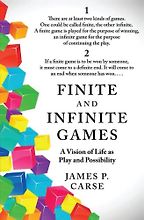What do you see as the commonality with these books and why do they explain ‘how the world works’?
I have a particular idea in mind when I say ‘how the world works.’ I mean forming what’s known as an ‘appreciative’ model of reality. The distinction I want to make here is between appreciative models and manipulative models — which is a distinction due to urbanist John Friedmann.
The idea is that a manipulative model of reality is something that allows you to do things. It’s based on skills or agency. An appreciative model is simply a satisfying understanding of the world. It may not necessarily allow you to do things—it may not allow you to build big companies or solve important problems like climate change—but it will give you an understanding of the world that satisfies you. That satisfaction, to people who seek knowledge, is very similar to the satisfaction that religious people get from having a religious idea in their head.
So all these books that we’re talking about offer you very rich and interesting and, in each case, somewhat counterintuitive appreciative models of significant chunks of experienced reality.
Obviously there’s no such thing as a single grand unified book that will give you a really satisfying model of every aspect of human experience that you might live through. But each of these books does a good job with a very big chunk of life as we experience it.
What do people do if they live their lives without this type of model?
There are two schools of thought here. One is the famous line that ‘the unexamined life is not worth living.’ There are a lot of people—especially people who are prone to intellectualize things—who sincerely believe that the unexamined life is not worth living. The contrasting sentiment is that the unlived life is not worth examining. I don’t think any particular person has ever said that, but a lot of people like to flip it around and come up with that.
I tend not to be doctrinaire about it. I’m open to the idea that there are different personalities when it comes to this sort of thing. Some people have a great need for having an appreciative understanding of their own lived experience. Other people seem to get along just fine learning how to work the world and get along in it and succeed and make millions of dollars or whatever it is that they set out to do. They don’t seem to feel any particular lack or spiritual angst from not having an appreciative model of the world. I don’t necessarily think people miss out, just that there are certain types of people who are predisposed to feeling a certain angst if they don’t have this.
Let’s start off with the most concrete book on your list — Francis Fukuyama’s two book series on the way institutions and governments work. That’s The Origins of Political Order: From Prehuman Times to the French Revolution (2011) followed by Political Order and Political Decay: From the Industrial Revolution to the Globalization of Democracy (2014).
Most of us, when we are first exposed to history in high school, learn an extremely dull, non-analytical version of history which is just one damned fact after another. It’s very unsatisfying. The way we are taught history also typically serves certain regional political purposes. In countries like Pakistan or Saudi Arabia, it might be much more deliberately political. In liberal democracies, it’s a bit more open. History is taught with a genuine intent to foster some sort of critical appreciation and developing a sense of history. But it’s still pretty banal: this king then that king and so forth.
Once you re-engage with history as an adult—and by this I mean intellectually aware, curious people not professional historians—there are very few treatments of all of history that truly satisfy your urge to understand just how human society functions and how it came to function the way it does. What are the variety of ways in which it functions around the world? How is the system in China different from the system in the United States. How did they each get to be where they are? All of these are questions that you could call analytical history.
Francis Fukuyama is best known for his 1989 article declaring the end of history. He approaches the end of history from the perspective of the fall of the Berlin Wall as a precipitating event, but he’s coming from an intellectual tradition that goes back to Hegel. It’s a metaphysical thesis about history that holds together very coherently. His basic argument was that liberal democratic forms, as they exist in the West and certain other parts of the world like Japan and India, represent the end state of political evolution, in a certain sense. It’s not that history itself ends as in stops happening, but that a certain aspect of evolution ends. I like the biological analogy, that in the primordial soup there were a huge number of replicator molecules that could self-produce but at some point DNA became the dominant monopolistic molecule that became the basis of all life. In that sense, history ended when liberal democracy emerged as the global standard for governance.
“There are a lot of people who sincerely believe that the unexamined life is not worth living. The contrasting sentiment is that the unlived life is not worth examining.”
Over the next 25 years, Fukuyama’s ideas were tested by the unfolding of history. Some people think that the events of the 1990s and 2000s proved him definitively wrong. Others think they proved him absolutely right. I happen to be in the second category. I think that events since he wrote that famous paper and book in 1989 have fundamentally proved him right.
This two-volume book is basically a very extended study of history from that starting point of ‘What happens if you look at history as a convergent evolutionary path that seems to end in liberal democracy? How did we get there?’
There are three basic pillars of liberal democracy that we are familiar with, the legislative, the judiciary, and the executive. He generalizes these into a strong state, the rule of law, and mechanisms for consent by individuals, so accountability mechanisms. He traces the evolution of these mechanisms around the world from as far back in recorded history as we can go and what he offers is a really nuanced story of how different pieces of the puzzle emerge in different parts of the world. For example, the idea of a strong central state with an impersonal bureaucracy and civil service examinations first emerged in China. The idea of a rule of law, as in a body of legal thinking that applies to rulers, just as it does to the ruled, did not emerge in China—a lack that still shows today—but it did emerge in India. And Europe was the first place where all three mechanisms came together for the first time: a rule of law, accountability, and a strong state.
So that is his basic framework. In between, there are very interesting chapters, about what happened in the Ottoman Empire, say. He traces how these three building blocks slowly develop, and how somewhere around the 18th century, in pre-modern Germany, the elements first began coming together in a way that we would recognize today as a modern, liberal democratic state. The first volume deals with that whole story until about 1800. The second volume deals with the story from 1800 to today and it covers all the things you would expect.
If you think of traditional history as Kepler’s theory of how the planets move in ellipses, in relation to that, Fukuyama’s model stands as a Newtonian gravitational model of how history works. That is why I think it is a very powerful appreciative model of a significant part of human existence. We spend all of our time living in states where we, by default, have given our consent to be governed by some complex mechanism. It’s a part of our external reality that we really do need to get a sense of in order to understand our particular version of the human condition. So that is my take on Fukuyama and why he is important.
What’s the role of the United States in all this?
The contribution of the United States to the evolution of governance is what Fukuyama calls ‘clientelism.’ His sense of the word clientelism is technically different from the way it is normally used, but it’s what we are seeing, for example, in the Trump campaign right now. That form of clientelism was pioneered by Andrew Jackson in the middle of the 19th century, and it has very peculiar characteristics. Unlike previous models of patronage, where elected, otherwise powerful, leaders used to guarantee their own support by handing out favors almost at an individual level, clientelism is the mechanism by which you hand out favors to large segments of the population that work for you in a democracy.
How and why do you think people should read more specialized histories, that don’t necessarily cover all of humanity? How do you try to think about and rectify differences between these broad models and 50-year time periods or particular leaders?
I would say that the intent of so-called ‘big histories’—that’s the phrase being used these days for really ambitious sweeping histories that cover all of humanity—is fundamentally different from what professional historians do. It’s anything that takes a broad sweep. Sapiens is another popular one that is doing the rounds right now, and there’s also David Graeber’s Debt, which is about the history of the financial system, viewed from the perspective of debt. The intent is to surface a particularly important mechanism that seems to have been operating through history and what its consequences are. Some are a lot more partisan and narrow in their interest, and what, I think, sets Fukuyama apart is that he doesn’t have a particular narrow interest.
If you read Graeber’s Debt: The First 5000 Years, it’s pretty clear that he is a strongly left-leaning thinker and writer who has strong sympathies with the condition of the oppressed through the ages. He comes up with a lens that sheds light on that in certain ways, like how the evolution of the financial system reflects patterns of how the oppressed have been oppressed over time.
Fukuyama is conservative-leaning and there are clear biases in his work. He prefers a strong state to a weak one and he likes a strong centralized authority. He seems to have a bit of a fetish for traditional Chinese modes of governance. But beyond all that, it is fundamentally a very broad and sweeping—and yet fairly detailed and nuanced—look at all of history.
“For non-professional historians these big histories are, in fact, the most useful thing to read”
More specialized studies are fundamentally about careful scholarship. Professional historians are scrutinizing events in a very narrow slice of time and space and even aspect: like the political situation leading up to World War II in Belgium. It’s about getting the story right, about getting all the evidence as carefully arranged as possible and interpreting it in as careful a way as possible. It is important that we do them right, especially around critical periods of history.
But the purpose of these big histories is somewhat different. They’re fundamentally about ethical truth-seeking and fleshing out the picture from different angles like economics, politics, culture. It’s fundamentally more ideological, because it’s about how you read a meaning into history. Professional history isn’t really about meaning; it is about facts. Big history is about meaning and you need a certain minimum scale of considering history in order to read meaning into it. Yes, you can look at tiny slices of history and look for meaning there, but big history works better, in my opinion. For non-professional historians these big histories are, in fact, the most useful thing to read.
And with that, let’s talk about another author who took on the state. This is James Scott and his book, Seeing Like a State: How Certain Schemes to Improve the Human Condition Have Failed (1998).
James Scott, compared to Fukuyama, has a much narrower lens. He primarily looks at modernity, corresponding to Fukuyama’s second volume (1800-today). His basic analytical lens is the gap between grand intentions and political projects and grim realities. He is non-partisan in the sense that he looks at this phenomenon in both conservatives and liberals, in Europe, Russia and in the US. His basic thesis is that there is a certain sensibility with which powerful individuals look at the world. This sensibility is what he calls ‘authoritarian high modernism.’
It proceeds like this: Think of somebody, an urban planner, looking at an ancient large city that is heavily populated, polluted, with lots of slums. In the early 20th century, somebody like Le Corbusier would look at that situation and all of the chaos and tend to dismiss it as irrational and poorly organized, as an ineffective organization of human society. There is a very strong instinct to sweep it all away, and replace it with well-planned modernist functional designed cities, where everything has a purpose and place. What they do is sweep the slate clean and rebuild from scratch.
But invariably, when high modernist planners do this, there are spectacular failures. There are huge amounts of unintended consequences. Things don’t work out as they planned. The people who are supposed to live in certain idealized ways, like rats in a maze, refuse to live in those idealized ways, and end up hacking and humanizing and recomplicating the city.
You can see this pattern throughout history. You can see it in ancient Rome, for example. But you can see it most clearly in post-1800 engineering-driven modern societies. You see it in urban planning, in forestry, in the planning of big dams. Whether it’s done by a communist leader or a capitalist one, whether it’s done with religious motivations or economic ones, it doesn’t matter. When a powerful person looks at a complex and chaotic reality and goes through their own thought pattern, invariably you see the set up for this sort of failure.
The reason it happens is that whatever seems chaotic, confusing, and irrational to the central birds-eye-view planner, with his god-like view of everything; whatever this person dismisses as noise, they are usually just projecting their own ignorance and lack of understanding onto what they are looking at. James Scott calls this phenomenon illegibility. It’s not like something like a slum is fundamentally chaotic or irrational, it’s just that the person looking at it doesn’t know how to parse it and figure out how it works.
If we look at any large slum anywhere in the world, it actually turns out that they are thriving economic engines with complex social systems embedded within them; powerful growing industries with a lot of economic vitality, social and cultural vitality. There are definitely problems—like poor sanitation—but those are practical problems that can be solved. That’s not what triggers the instinct to clean and build something new and shiny. It tends to be a lack of understanding plus a sense of fear. Authoritarians are always suspicious of what’s lurking in the chaos. And that’s justified: Revolutions typically start in places like slums.
Scott’s book is very important for anybody who wants to have an understanding of how complex modern societies work, why things seem to fail predictably, and what you can do about them, to a limited extent. He doesn’t have many solutions and prescriptions but his analysis and diagnosis is spot on.
Let’s move on to your next book which is about mathematics. This is Edna Kramer’s overview of the field, The Nature and Growth of Modern Mathematics (1970).
In modern societies, especially in America, there’s a tendency in popular culture to relegate the role of mathematics to the specialized few who are functional components of the scientific and technological sectors. Mathematicians are seen the same way as plumbers — instrumental members of society who are tossed certain things. It’s a fair way of looking for someone who’s not familiar with how math works.
But there’s another way to look at mathematics, which is as an unreasonably effective lens for appreciating and understanding what the world is like. This is not because human mathematicians are geniuses—though many are, of course—but that’s not where it comes from. Reality itself has a fundamentally mathematical structure at some deep level. We can take these little symbols made up in ancient Mesopotamia to track grains—this practical set of tools, like a subset of language—and we’ve been able to grow it and build an intellectual edifice that somehow has this magical capacity to describe just about anything we look at it in a very satisfying way.
“Reality itself has a fundamentally mathematical structure at some deep level”
That’s one of the greatest mysteries of the universe. Why did this practical thing open up a vast universe of complexity and subtlety” Why are there prime numbers? Why do large numbers have weird properties? Why does the Pythagorean theorem exist? All these are questions about mathematics as somehow essential to the fabric of the universe.
It really saddens me that math is taught in a way that turns off more than half the population as something scary and to be avoided. It’s especially tragic that this happens to young girls. Only a small subset explore the higher reaches of mathematics, and of that subset the vast majority end up having exactly the same instrumental view of mathematics that’s expected of them by society. Even if they’re extraordinarily talented, they never develop an appreciative understanding of math as a philosophical view of the world.
So what does this book do right?
It is the only book of its kind that has a big history of all of mathematics. Everything from pure number theory to prime numbers to calculus: all of it is covered. And it’s covered in a way that both highlights the practical applications of mathematics—which even non-mathematicians are able to see—and it brings out the philosophical beauty and wonder math can evoke.
Even if you’re not mathematically trained and the best you can do is pre-calculus, this is a book worth reading as best as you can. Yes, you’ll get lost — there are equations in this book. I’ve had some grad-level training in mathematics and I got lost in parts. But that’s ok. The wonder is still conveyed.
The book also has significant coverage of the stories of mathematicians and strikes a great balance between them as humans and what they did.
This next book has no equations and has sold a few more copies than Edna Kramer’s. You’ve chosen Douglas Adams’s The Hitchhiker’s Guide to the Galaxy (1978).
To the extent that I have a Bible in my life, I’d say this book is it. It’s a very easy and funny book to read, whatever your philosophical sophistication. But it repays rereading as you grow older. Each time you discover new nuances, just how sophisticated Douglas Adams was in his positions.
It doesn’t have a grand overarching thesis, it’s not that type of book. It’s very pointillist. A lot of the wit and the charm is in individual sentences or even word choices that really nail a particular philosophical issue. Like the idea that the answer to life, the universe and everything is 42. The question we all go around, asking—the meaning and purpose of life, this whole existential yearning question—just nailing the fact that it’s an extremely ill-posed question by giving this ludicrous answer forces you to do a lot of philosophical soul-searching and understand what it is you’re actually trying to think about. The book has a thousand little things like this, and each of them is six onion layers deep. Rereading this book is a way to reboot your brain anytime you’re feeling stale in your thinking.
What did this book do for you at different times in your life?
At fifteen, when my tastes were just starting to form, it struck me at a gut level as fundamentally right, even though I didn’t get the nuances of Adams’s positions. It wasn’t religious, it wasn’t ponderous and philosophical, it was an effective lens to look at the world. It also struck me as deeply scientific in its sensibility. Science is very hard to teach, and most people think of science as this humorless, boring activity where people are all about numbers and proofs. But I think science is a sensibility you adopt in your way of looking at the world. There’s no way this sensibility can be taught. All you can do is recognize it in your native way of thinking and allow it to grow. At a very young age, it was great to see that sensibility in.
At forty—I’m almost 42 now, so I’m getting to my Douglas Adams birthday—I often find inspiration for exploring philosophical ideas of interest in very specific pieces of Douglas Adams. A few years ago, I wrote a blogpost called “Learning to Fly by Missing the Ground.” I had a whole riff on intentions, goals and how you unleash serendipity in your life and become playful. It all started with a vignette in one of his volumes, when a character learns to fly. It turns out the trick is you have to miss the ground. The way you end up missing the ground is if someone surprises and startles you just as you’re about to crash into the ground. So on one planet, people hire others to jump out and say surprising things to them just as they’re about to hit the ground. It was a beautiful thought that I didn’t truly appreciate before.
Tell me about your last book, James Carse’s Finite and Infinite Games.
This book is almost like poetry. When I was reading it I was highlighting each paragraph and at some point, I gave up. It’s densely aphoristic — each sentence represents what would have taken another author several pages. It is well worth the effort and completely repays your thinking.
The basic idea is that life can be understood as a basic contrast between two kinds of games that we play: games that we play to win, and games that we play to continue playing. This is a crucial distinction. Everything that’s generative, open-ended, curious, and creative about the human condition tends to be an infinite game. What we associate with surface-level beauty but also static, impoverished, finite in its vision, and closed off in time and possibility space is a finite game. The terms aren’t finite in time — rather finite in possibilities.
It turns out to be an extraordinarily powerful way to look at the human condition. There’s a rough mapping between finite games and traditional sorts of religion, sports, ideas of what it means to have a good life, and infinite games are about curiosity, exploration. Even though you can be infinite-game oriented in a religious sense—Carse was a Christian theologian—I think they’re fundamentally more scientific in their sensibility because they’re open to all possibilities.
Five Books aims to keep its book recommendations and interviews up to date. If you are the interviewee and would like to update your choice of books (or even just what you say about them) please email us at [email protected]
Five Books interviews are expensive to produce. If you've enjoyed this interview, please support us by donating a small amount.

